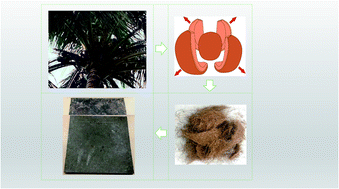The coconut (Cocos nucifera) fruits are extensively grown in tropical countries. The use of coconut husk-derived coir fiber-reinforced biocomposites is on the rise nowadays due to the constantly increasing demand for sustainable, renewable, biodegradable, and recyclable materials. Generally, the coconut husk and shells are disposed of as waste materials; however, they can be utilized as prominent raw materials for environment-friendly biocomposite production. Coir fibers are strong and stiff, which are prerequisites for coir fiber-reinforced biocomposite materials. However, as a bio-based material, the produced biocomposites have various performance characteristics because of the inhomogeneous coir material characteristics. Coir materials are reinforced with different thermoplastic, thermosetting, and cement-based materials to produce biocomposites. Coir fiber-reinforced composites provide superior mechanical, thermal, and physical properties, which make them outstanding materials as compared to synthetic fiber-reinforced composites. However, the mechanical performances of coconut fiber-reinforced composites could be enhanced by pretreating the surfaces of coir fiber. This review provides an overview of coir fiber and the associated composites along with their feasible fabrication methods and surface treatments in terms of their morphological, thermal, mechanical, and physical properties. Furthermore, this study facilitates the industrial production of coir fiber-reinforced biocomposites through the efficient utilization of coir husk-generated fibers.

